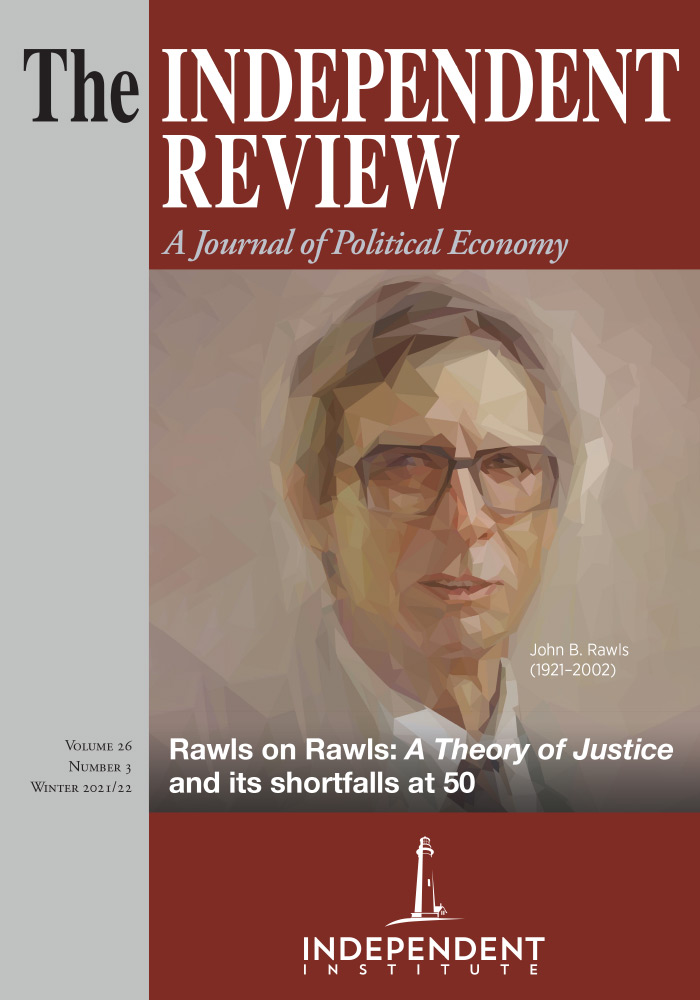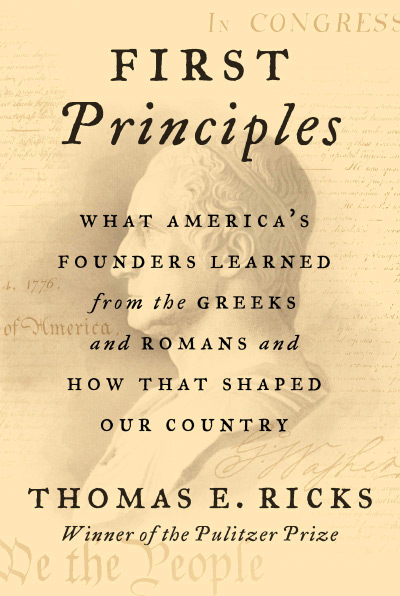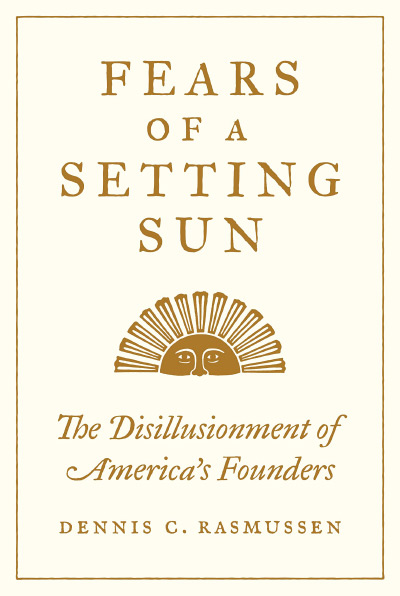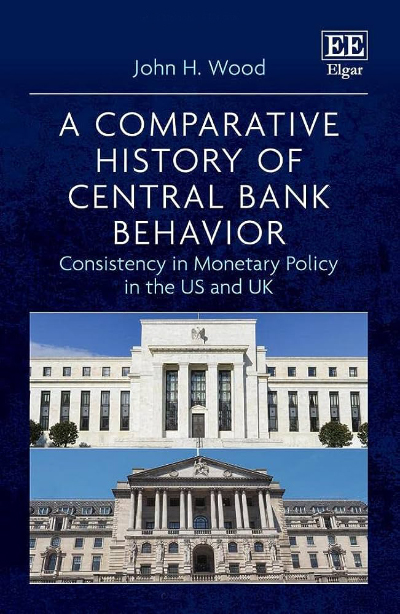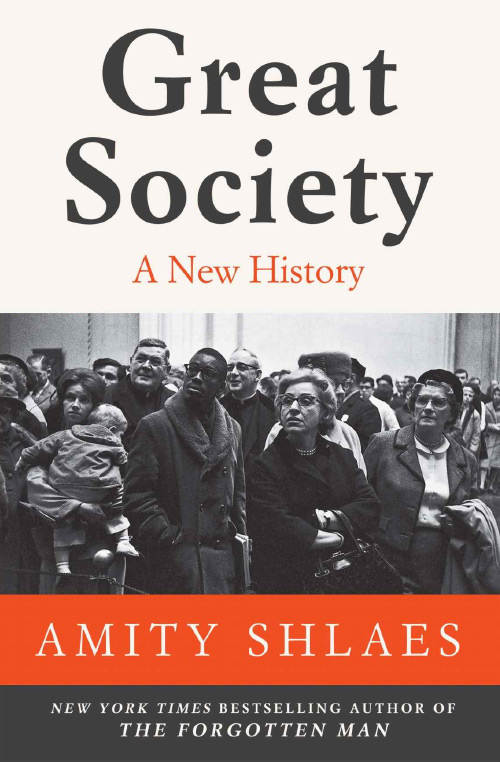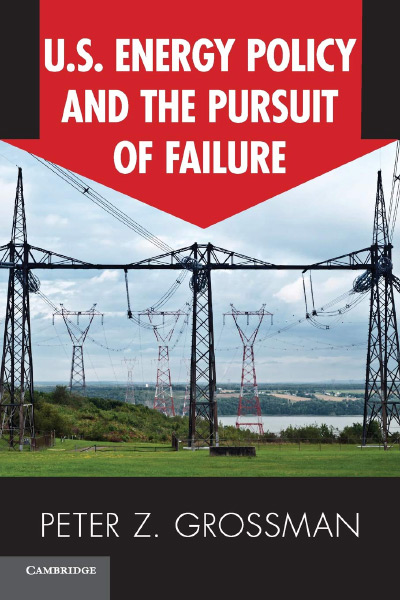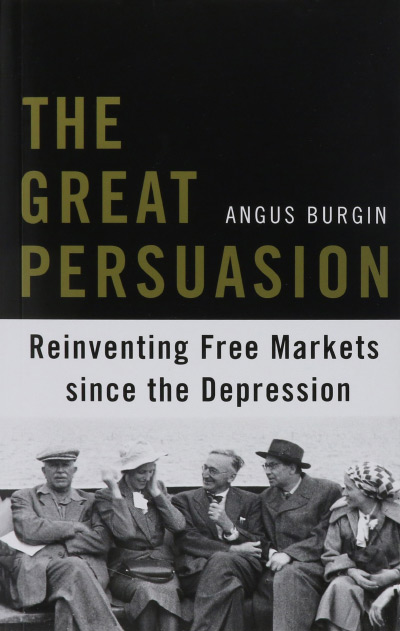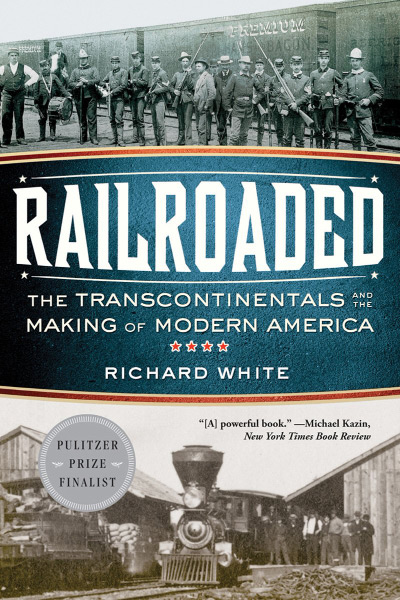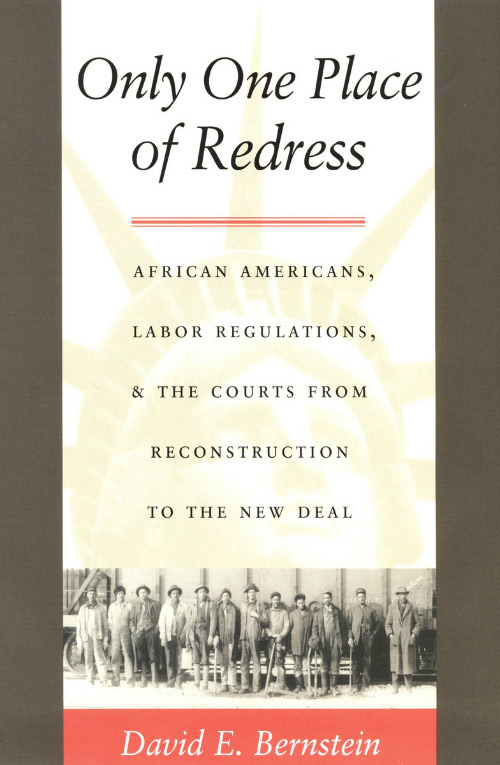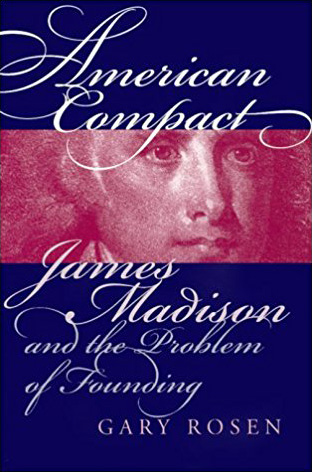It is not obvious that these two books should share space in a review. But it struck me that the authors have painted “before” (Ricks is looking at where the ideas of the Founders came from) and “after” (Rasmussen is considering the Founders’ assessment of what had happened, with a little hindsight) views.
Ricks was led on this intellectual journey by his astonishment at the results of the 2016 presidential election (note to coastal elites: you folks should get out more). But his reaction, to his credit, was not to blame the deplorables, but to look for the “first principles” of the United States as a way of understanding just what it was that divided us so deeply. Early on, he identifies what he sees as a paradox or contradiction:
We are a nation fundamentally dedicated to equal standing before the law, yet also have developed a political system in which one of the two major parties always seems to have offered a home to white supremacists, up to the present day. (p. xix)
Well, as long as we are getting down to “first principles,” it is worth noting that precisely this tension is built into any republic that uses democratic elections to choose its leaders. The “equal standing before the law” principle is a commitment of the constitution. On the other hand, the necessity of appealing to majorities is the essence of majoritarian democracy. And no constitution can stand indefinitely against determined majorities, as repeated threats of “court-packing” or refusal to credit Americans’ Article IV “rights, privileges, and immunities” have shown throughout our history.
I’m mystified that Ricks (like my Duke colleague, Nancy McLean) would even think of equating “democracy” with “equal standing before the law.” In fact, majoritarian democracy must be precisely the opposite of equal standing before the law: in elections the majority forces its will on a minority. To feign surprise that the “minority” is literally minority ethnic groups is either disingenuous or blinkered. Why in the world would you expect rectitude in the multitude? Why would a system based on power protect the weak, when weakness is defined simply by numbers and power is based on interest-group politics, not merit?
Still, that is a crotchety diversion; whatever the motivation of Ricks’ work, the result is very useful and informative. His research strategy is as simple to describe as it was arduous to carry out: He “read the books [the Founders] read and the letters they wrote to one another about those books” (p. xvii). Nicely done. One of the undergraduate courses I teach at Duke, “American Values and Institutions,” used that conceit—read what the Founders would have read—to form the reading list, but I am embarrassed at how much more thoroughly and effectively Ricks followed through. There are a number of insights that Ricks offers as informed conclusions about binaries, which I found fascinating. For one, James Madison—though he is held in high esteem, and given a central role in historical accounts—is likely underrated in terms of his influence and, in particular, being a conduit for classical learning and examples as an architecture of the constitution. John Adams, by contrast, is overrated, with very few of his supposed contributions standing careful scrutiny.
Another Ricksian binary: Rome was much more revered, and seen as a model, than Greece. Roman thought was more influential, and the actual institutions of Roman law and republican institutions was much more admired. If there was anything admirable about Greece, it was Sparta; Athens was seen as an anarchic, chaotic mess, high principles notwithstanding.
Ricks argues that there were three fundamental mistakes made by the Founders, each of which he would trace to their reading (or perhaps self-interested misreading) of the classical works on governance. These mistakes were:
- A misplaced optimism about the power of “public virtue” to limit tyranny
- A pathological mistrust of parties and partisan politics
- An acceptance of human bondage, extending in some cases to the claim that slavery was a positive good
This is a good list, and it is true that we still bear the costs of these today, in the legacy of slavery and the schizophrenic place of parties in the formal institutions of government. As James Madison wrote in Federalist #57:
The aim of every political Constitution is, or ought to be, first to obtain for rulers, men who possess most wisdom to discern, and most virtue to pursue the common good of the society; and in the next place, to take the most effectual precautions for keeping them virtuous, whilst they continue to hold their public trust.
This is precisely the view that Ricks was whining about at the outset, given his claim (which I don’t understand, without assuming virtue) that majorities will conform to rule of law. Either (as I claim) rule of law is a restriction on majorities, requiring separation of powers and strong constitutional prohibitions on imposing limits on individual rights, or (as Ricks claims) rule of law is the same as majorities, and then the only hope is virtue. It is fair to say that the original governing document, the Articles of Confederation, did in fact expect too much virtue from the craven state legislatures, and that went badly. But Federalist #57 was a defense of the second governing document, what we now call “the” Constitution. In that context, it is not so clear to me that Madison (at least in 1788, when #57 was written) is overly optimistic; he just doesn’t write virtue off completely.
That said, Ricks has a point. I was myself a Republican for much of my adult life. But in 2003 G. W. Bush invaded Iraq, and since this followed the Patriot Act which concentrated unchecked power in the executive branch, I became an ex-Republican. My friends on the left were quite sympathetic, agreeing that the Presidency was too powerful. But after 2008 my leftist friends were quite sanguine: since President Obama was (in their minds; I don’t get it) a very model of virtuous President, there was no longer a concern.
But then they unironically converted back to “the President is too powerful!” after 2016. And then, so help me, the left immediately reconciled with excessive executive power the moment Joe Biden was elected! It turns out that powerful thugs in office are fine, provided they are “our” powerful thugs. That’s not the founders, folks, that’s partisan majoritarian democracy. We can’t blame the Founders; they were right that Roman republicanism, not Greek hyper-democracy, was the best form of government.
Dennis Rasmussen reverses the research perspective employed by Ricks: rather than looking at what the Founders read, and said to each other, on their way to the Founding, Rasmussen looks at what the Founders thought, and worried about, after the deed was done. Of course, this requires a different rationale for why we should care. Ricks sought to understand what the Founders intended, as a way of figuring out how things have gone off the rails today. (My answer, as I hope is clear, is that we have abandoned the Founders’ federalist republicanism in favor of majoritarian excess and centralized control of all power.) But why should we care what the Founders themselves thought they had gotten wrong, save perhaps as an interesting but narrow exercise in intellectual history?
Rasmussen begins with an understatement: “Americans no longer deify the ‘Founding Fathers’ in quite the way we once did” (p. 3). Given that San Francisco has proposed that Abraham Lincoln’s white supremacy (at least regarding Native Americans) required renaming a high school, it is fair to say that actual slave-owners such as Madison and Washington are no longer “deities;” yes. My first thought, though, was that Ricks could learn from Rasmussen. Ricks concluded, in 2016, that the “American experiment” was a failure, and went back to investigate the reasons. But Rasmussen concludes that some of the most prominent Founders had concluded that the American experiment was already a failure in 1816. The point being that if the Founders thought that the U.S. system had already been modified beyond recognition by 1816, it is not surprising that two hundred years later the system was unrecognizable.
This is not a statistically representative poll; Rasmussen selects four of the most prominent of the Founders for careful attention. He picks George Washington and Thomas Jefferson, from Virginia, Alexander Hamilton from New York, and John Adams from Massachusetts. Before you say, “Where’s Madison?” the answer is that Madison was among the “we failed” camp, and was “sanguine about the nation and its politics all the way until his death in 1836” (p. 4). Rasmussen devotes two full chapters to Madison’s apostasy from the pessimistic near-consensus (at least ten other major Founders were on “Team We Failed,” according to Rasmussen).
The title of the book derives from a quip by Benjamin Franklin, who was taken by the image of a half-sun on the crest rail of a chair occupied by George Washington during the Constitutional Convention. The chair had been donated by John Folwell in 1779 for use by the Speaker of the Pennsylvania House, but now became a seat on a larger stage. A rising sun looks just like a setting sun, of course, and Franklin had made a jocular reference to the fact that throughout the convention he had wondered whether rising or setting was the fate of the new nation, and the new Constitution. This “fear of a setting sun,” as Rasmussen puts it, is then the sense that the reason “America’s prospects seemed so doubtful to the founders during the nation’s early years [was that] in fact, they were” (p. 13).
Rasmussen presents the pessimists’ views in order of their demise: first Washington (1799), then Hamilton (1804), then Adams and Jefferson (both on July 4, 1826, a great coincidence given their complex life-long dialectic). There are some shared themes, but each had his own reasons for pessimism. Washington’s great regret was the failure to control the demon of faction and partisan fervor; Hamilton was disconsolate over the power of revolutionary France, of the contagion of democracy and partisanship, and the threat of secession and chaos because the state governments, in his mind, commanded too much formal power and too much informal loyalty in the patched-together federal system. Adams pretty much hated everything, and everyone, and had the sentiment returned in kind, but his main worry was the inability of the “republic of virtue” to control itself, unleashing what we would now call rent-seeking from every quarter. Jefferson was optimistic much longer (but then he was President for two terms, and saw the Louisiana Purchase as a masterstroke of diplomacy, which, in fairness, it was). But Jefferson (correctly) saw the controversy over the Missouri territory and the problem of slavery as being likely to cause contention indefinitely, and dissolution of the nation itself a probable consequence.
James Madison, a small figure physically, is sometimes seen as being diffident and quiet (though of course he could write, and was the architect of much of the Constitution). But that is a misreading; while personally shy, Madison fully recognized and accepted his place in history; as Rasmussen notes, Madison “declared matter-of-factly at the Constitutional Convention that their deliberations ‘would decide for ever the fate of republican government’” (p. 7). But Rasmussen’s description of these founders reminded me of both Adam Smith’s “man of system” and Thomas Sowell’s notion of “constrained vision.” Washington personalized the nation, and saw his honor at stake, so that is something else. But Jefferson and Hamilton were both men of “system,” and had “unconstrained visions” of the nation, which is why they hated each other.
Madison, far more than the other central founders, saw the constitution as a starting point, and had limited expectations of the ability of the founding generation even to foresee, much less direct, the path of the nation decades later. It seemed to upset the other founders, especially Washington and Adams, that anyone might dare to disagree with the obvious truth of their views, and of course Hamilton and Jefferson were each convinced that the other, if victorious, spelled doom. Madison saw conflict and contention as inevitable, and the very fact that the constitution survived the tempestuous and chaotic conflicts of its first forty years was evidence that it might survive. As Madison put it, “A government like ours has so many safety valves, giving vent to overheated passions, that it carries within itself a relief against the infirmities from which the best of human institutions can not be exempt” (quoted by Rasmussen on p. 211).
What to make of all this? Given the useful perspective Ricks gives, about what models and theories the founders were relying on, and the fascinating perspective Rasmussen gives on what the founders thought after the fact, it is tempting to want to close the circle: what would the founders think of American politics in 2021? In some ways, this is the question that has animated my branch of political science, often called “public choice.” James Buchanan would often say that he and Gordon Tullock had simply been trying to elaborate a Madisonian vision of constitutions in The Calculus of Consent (1962, University of Michigan Press). A hallmark of public choice is the distinction between the rules of the game, and plays of the game. Except for Madison, the founders mixed their views of these two levels, sometimes worrying about whether the rules were good, and sometimes fretting over specific outcomes (Jefferson won the presidency! The world has ended!). From that perspective, the most important thing is to protect the rules, rather than suspending the rules so as to achieve the short-run outcomes one prefers.
That’s the reason I think that Madison would be worried, in 2021. There are very few voices advocating for rules over outcomes; every election is the “most important election of our lifetimes!” and every policy debate—even wearing a facemask, an innocuous choice—immediately divides us into warring partisan camps. Waking up on the morning after an election or a key vote in Congress, disliking the outcome, and seeing that as an excuse to destroy the foundation of political order, is what should scare all of us.
| Other Independent Review articles by Michael C. Munger | ||
| Spring 2024 | Following Their Leaders: Political Preferences and Public Policy | |
| Spring 2024 | The Origins and Evolution of Consumer Capitalism; Crack-Up Capitalism | |
| Winter 2023/24 | The Classical Liberal Diaspora | |
| [View All (79)] | ||

